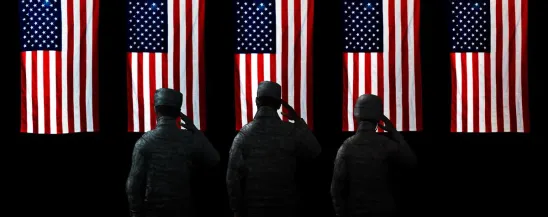President Joe Biden signed the historic Honoring Our Promise to Address Comprehensive Toxics (PACT) Act into law today.
Veterans exposed to toxic chemicals during their service are now eligible for new benefits, and with the Camp Lejeune Justice Act included in the bill, those exposed to contaminated water at the Marine Corps Base are able to file lawsuits for damages and injuries.
This is a monumental step forward in helping all veterans exposed to toxic chemicals during service and also a breakthrough in achieving justice for veterans, families, non-military staff, and others who were harmed at Camp Lejeune.
How will the Honoring Our PACT Act help Veterans?
The Honoring Our PACT Act was introduced in June 2021 by Representative Mark Takano (D-CA), guided by the input of toxic-exposed veterans, lawmakers from both sides, the Department of Veterans Affairs, and others.
According to the bill (H.R. 3967), the Honoring Our PACT Act will provide eligibility for Department of Veterans Affairs (V.A.) medical care, mental health services, and counseling to veterans who:
-
Participated in a toxic exposure risk activity (a qualifying activity that requires a corresponding entry in an exposure tracking record system)
-
Served in specified locations on specified dates
-
Deployed in support of a specified contingency operation.
The Honoring Our PACT Act is a massive improvement in governmental action toward veterans who were exposed to toxic chemicals during service. In multiple military operations and various military bases across the world, service members have been exposed to toxic chemicals in burn pits, drinking water, airborne gasses, and by other hazardous means.
The Honoring Our PACT Act will finally afford veterans the help they need and deserve.
What is the Camp Lejeune Justice Act?
Within the Honoring Our PACT Act is the Camp Lejeune Justice Act. This bill will allow people who used contaminated water at the North Carolina Marine Corps Base to file lawsuits to recover damages for toxic exposure.
The bill states that people who were at Camp Lejeune between August 1, 1953, and December 31, 1987, for 30 days or more are eligible to file suit. Veterans, family members, non-military workers (civilian contractors), and others who were exposed between these dates may qualify for a lawsuit.
Water Contamination at Camp Lejeune
Most North Carolinians are familiar with our eastern North Carolina military installations. Camp Lejeune is a Marine Corps Base on the coast of North Carolina. Established in 1941, the base has hosted millions of Marines and their families, employed many civilians, and been a hub for the Marines Corps throughout its history.
Tragically, water contamination at the base was rampant. Multiple volatile organic compounds such as tetrachloroethylene, trichloroethylene, vinyl chloride, and benzene permeated the water base residents and workers drank, bathed in, cooked with, and used for decades. Though contamination was discovered as it happened, very little was done to mitigate the risks, and the truth about the danger was withheld from those being harmed.
Upwards of one million people were exposed to toxic chemicals in the Camp Lejeune water supply. People exposed to the water have suffered from various types of cancer, Parkinson’s Disease, birth defects, and other serious and often deadly medical conditions.
What does the Camp Lejeune Justice Act mean for Veterans Exposed to Toxic Water?
The Camp Lejeune Justice Act will allow veterans and others who were exposed to contaminated water at Camp Lejeune to take legal action against the military.
Impacted people will be able to recover compensation for their injuries, medical costs, emotional harm, and any other applicable damages – including wrongful death. The Act requires the completion of an administrative process prior to the filing of a lawsuit. All claims ripe for filing suit must be filed in the U.S. District Court: Eastern District of North Carolina. While there is much uncertainty in this unprecedented, unique Act, it is believed that eventually, some grouping of cases will eventually occur as they work their way through the legal system. One logical way for the cases to be grouped would be by disease or disorder – collecting cases with similar harm into groups. However, it is certainly possible that many of the early cases will be tried to jury verdict before grouping or consolidation occurs.
Can Family Members and Non-Military Staff File Suit?
Yes, family members of veterans and civilian workers who were exposed to toxic water are able to file claims for compensation – after the completion of the administrative claim process, suit can be filed. The Camp Lejeune Justice Act is broad, allowing not just those who were on active duty to participate.
Those able to file claims for compensation include:
-
Military family members present at the base
-
Non-military staff
-
Other exposed civilians (contractors)




 />i
/>i

